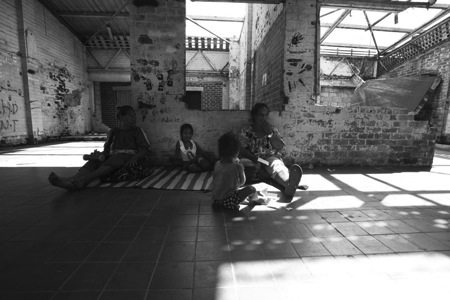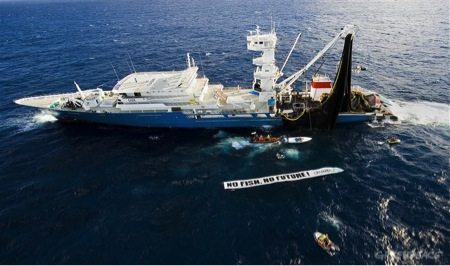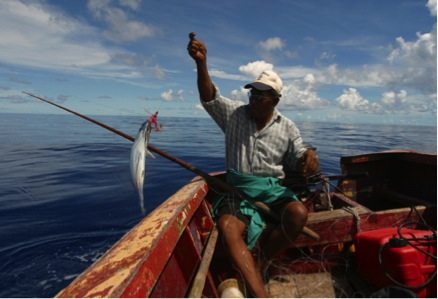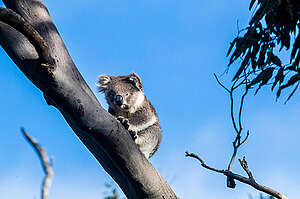The Director of the Parties to the Nauru Agreement (PNA), Dr Transform Aqorau encouraged its membership to change their mindset about being wealthy custodians of a billion dollar resource and to pursue alternative models of development rather than rely on access arrangements with donors.
Blogpost by Duncan Williams
The PNA group is responsible for the world’s largest tuna fishery and is made up of eight Pacific Island Countries. Not only has it shown global leadership when it comes to implementing meaningful conservation and management measures for protecting tuna, the group is also taking steps to ensure greater local participation in the fishery under its control. PNA have already closed off large swathes of ocean space and have put in place progressive systems to manage the level of fishing vessels can undertake in a year.
To a region where some nation states are the size of Manhattan and options to make a living are scarce, it makes sense to ensure sustainability of a multi-billion dollar fishery. This is not only sensible but is a necessity for ensuring that generations of Pasifika have a safeguarded livelihood and FUTURE.
Restricting tuna fishing through common sense, sustainable management practices at a time when tuna stocks worldwide are on the verge of collapse from years of uncontrolled plunder have had additional bonus results –PNA’s pursuit of conservation has seen anincrease in the value placed on tuna.

A family is pictured at the Nauru market, Once having the highest income per capita in the Pacific, Nauru's economy and environment collapsed after decades of phosphate mining had been depleted. With virtually nothing more to trade, the island nation is staking its hopes on protection of fisheries in its waters and the nearby international waters. © Paul Hilton / Greenpeace
This is a great result and shows tuna conservation is a WIN-WIN situation. Pacific Island countries are now custodians of a valuable resource that they have tirelessly worked hard to protect and conserve. They should now be reaping the rewards of their long fought struggles, Right?
But it is not that simple.
Sustainable tuna doesn’t necessarily result in equitable fisheries.
The stark reality is the PNA and other Pacific Island countries alike are not able to make the most out of this situation. The bulk of the opportunities to fish are carried out by foreign fishing interests through one-sided and unfair access treaties and joint venture partnerships with foreign companies. So as long as foreign fishing fleets own and operate close to 80% of the tuna fishing vessels and the lion’s share of processing facilities, Pacific Island countries will continue to receive only a small percentage of the value their tuna is fetching on any given day.

Greenpeace activists deploy a banner reading "No Fish No Future" next to the AlbatunTres fishing in the Pacific, the world's biggest tuna fishing vessel, known as a super super seiner. The ship can take 3000 tonnes of tuna in a single fishing trip which is almost double the annual catch of some Pacific island countries.
Dr Aqorau’s challenging statements are visionary if not proverbial. It is only through “a change in thinking and attitude the region can capture a greater proportion of the wealth from their own resources.”
There has been no better time to take up this challenge. The time to act is now.
Greenpeace has been actively campaigning the world over to ensure global markets demand more sustainable tuna products from fisheries operated in an equitable way in a bid to encourage and empower tuna-rich nations such as the PNA to develop sustainable locally owned fisheries. Fisheries such as pole and line, would not only see a greater share of the wealth of tuna find its way back to the vulnerable island states, communities and children; but would also ensure tuna will be there for eons to come.

Massive industrial fishing vessels plunder the Pacific region of tuna, threatening the livelihoods of traditional fishers such as Atera Ari, pictured hauling in a skipjack tuna(Copyright notice: © Greenpeace/Behring).
The PNA and Pacific as a whole have stood by the union adage to achieve global progress in tuna conservation – “united we stand, divided we fall”.
It is only through solidarity borne out of a history in regionalism and togetherness that the Pacific has been able to purse its ambition to sustainably manage its tuna. Once more, we must now look at the possibilities within the region for developing sustainable, local tuna fisheries. We must look back at our Our Pacific roots. In the days of our forefathers, trade and arrangements between islands to meet the shortfall for labor, canoes, building material or unique crafted items were not uncommon. This applies in the context of Pacific tuna development and there is much to be gained – With shared concerns for a shared resource with peoples of a shared heritage and vision of where our tuna will be tomorrow. We must explore this old paradigm to give rise to a new cooperation in Pacific tuna development.
For tuna development to take place, Pacific solidarity, sustainability and equity are at the forefront. Only then can our island nations, communities, children and future generations truly capture a greater proportion of wealth from OUR tuna resources.

